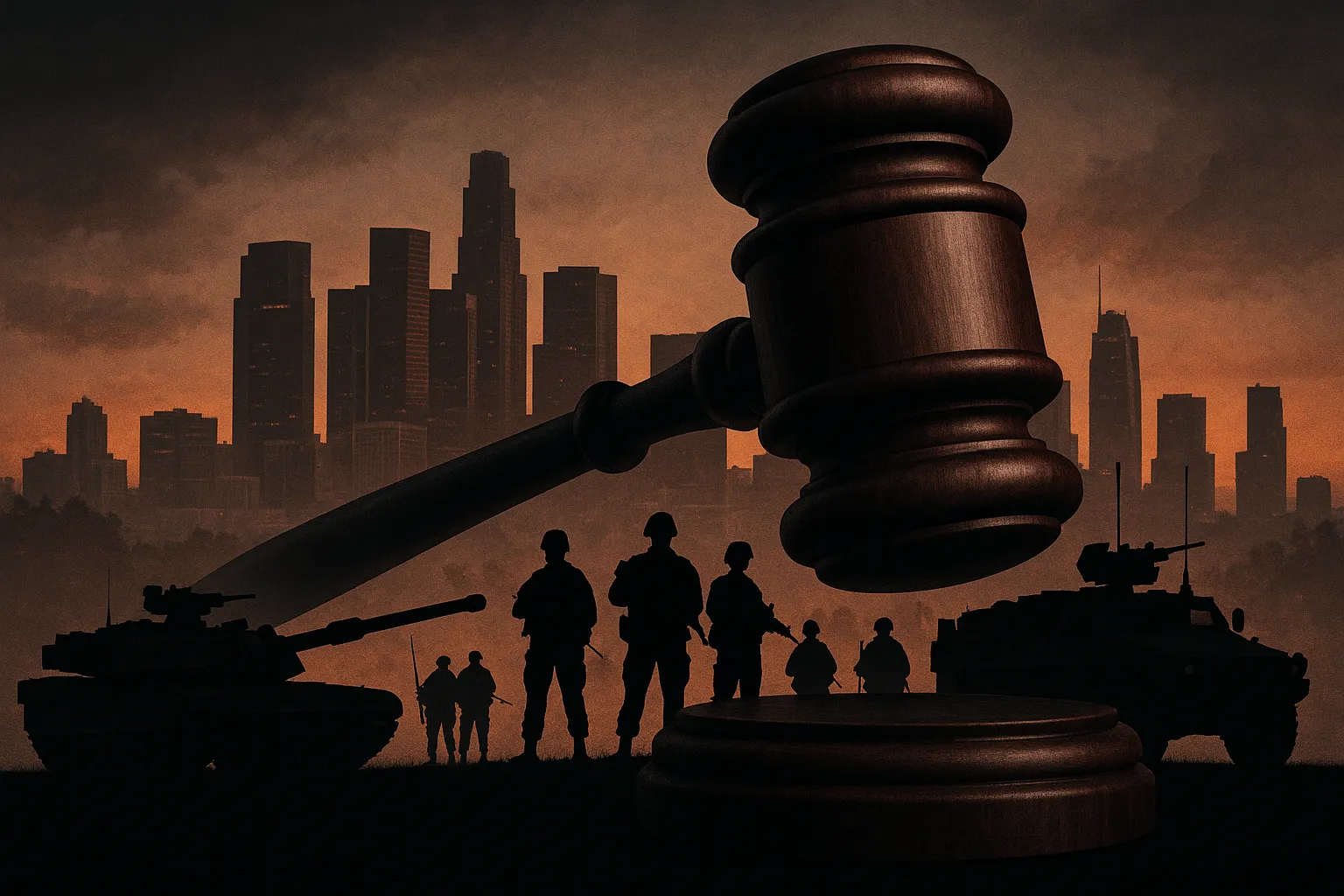Federal Judge Rules Trump Administration’s Troop Deployment to Los Angeles Violated Posse Comitatus Act

September 2, 2025 - San Francisco
A federal judge on Tuesday held that President Donald Trump’s use of National Guard troops and active-duty Marines in Los Angeles this summer ran afoul of the Posse Comitatus Act, the 1878 statute barring military forces from performing domestic law enforcement duties.
U.S. District Judge Charles Breyer of the Northern District of California issued a 52-page opinion finding that the administration’s June deployment of some 4,000 National Guard members and 700 Marines to Los Angeles to support protests against immigration-enforcement operations constituted an unauthorized exercise of military power. The ruling enjoins federal forces in California from engaging in arrests, searches, seizures, crowd control, traffic management, riot suppression or other civilian-law-enforcement activities unless expressly permitted by Congress or the Constitution.
Breyer emphasized that Congress “spoke clearly in 1878 when it enacted the Posse Comitatus Act, prohibiting the use of the U.S. military to enforce domestic law,” and concluded that no rebellion occurred in Los Angeles nor was civilian law enforcement incapable of maintaining order. The judge noted evidence that troops in protective gear and military vehicles systematically established perimeters and blockades, demonstrating a de facto military police presence.
The injunction is stayed until September 12 to allow the Trump administration time to appeal to the Ninth Circuit, which previously overturned a related June order stripping the president of control over federalized California Guard forces under Title 10 authority. California Governor Gavin Newsom, who brought the lawsuit, praised the decision as a reinforcement of constitutional limits on executive power.
Justice Department attorneys have argued that the deployments were necessary to protect federal property and personnel and fall within exceptions to the Posse Comitatus Act. In court, they maintained that the military’s role was purely protective, not law-enforcement, a characterization Breyer repeatedly challenged as offering “Alice in Wonderland” logic about the scope of presidential authority.
As the case moves toward appellate review, legal experts predict that the Ninth Circuit’s ruling will set a critical precedent delineating the boundary between presidential deployment powers and prohibitions on domestic military policing.
Categories
Autos and vehicles Beauty and fashion Business and finance Climate Entertainment Food and drink Games Health Hobbies and leisure Jobs and education Law and government Other Politics Science Shopping Sports Technology Travel and transportationRecent Posts
Tags
Archives
08/19/2025 (3) 08/20/2025 (40) 08/21/2025 (27) 08/22/2025 (22) 08/23/2025 (4) 08/24/2025 (21) 08/25/2025 (30) 08/26/2025 (24) 08/27/2025 (29) 08/28/2025 (16) 08/29/2025 (9) 08/30/2025 (13) 08/31/2025 (17) 09/01/2025 (167) 09/02/2025 (124) 09/03/2025 (149) 09/04/2025 (112) 09/05/2025 (72) 09/06/2025 (169) 09/07/2025 (162) 09/08/2025 (150) 09/09/2025 (176) 09/10/2025 (194) 09/11/2025 (194) 09/12/2025 (186) 09/13/2025 (207) 09/14/2025 (159) 09/15/2025 (175) 09/16/2025 (198) 09/17/2025 (196) 09/18/2025 (196) 09/19/2025 (207) 09/20/2025 (129) 09/21/2025 (4)